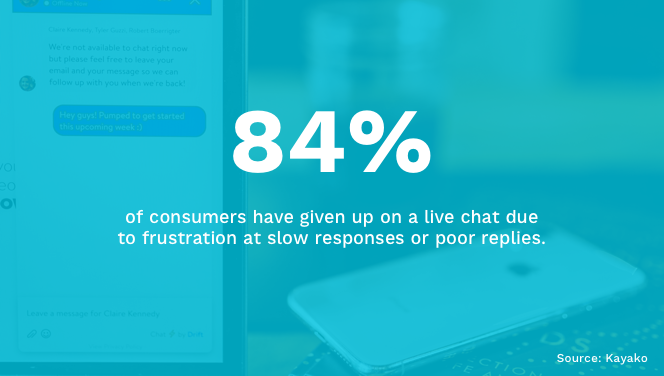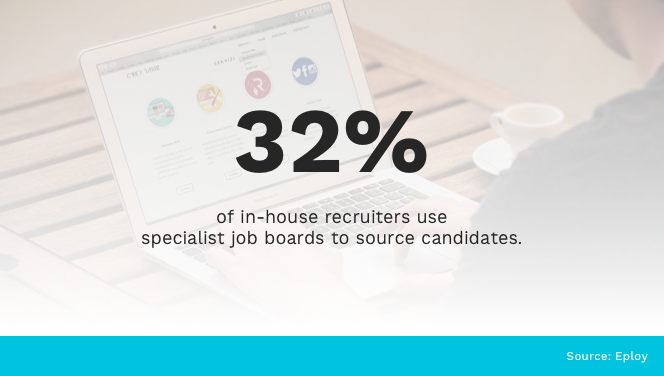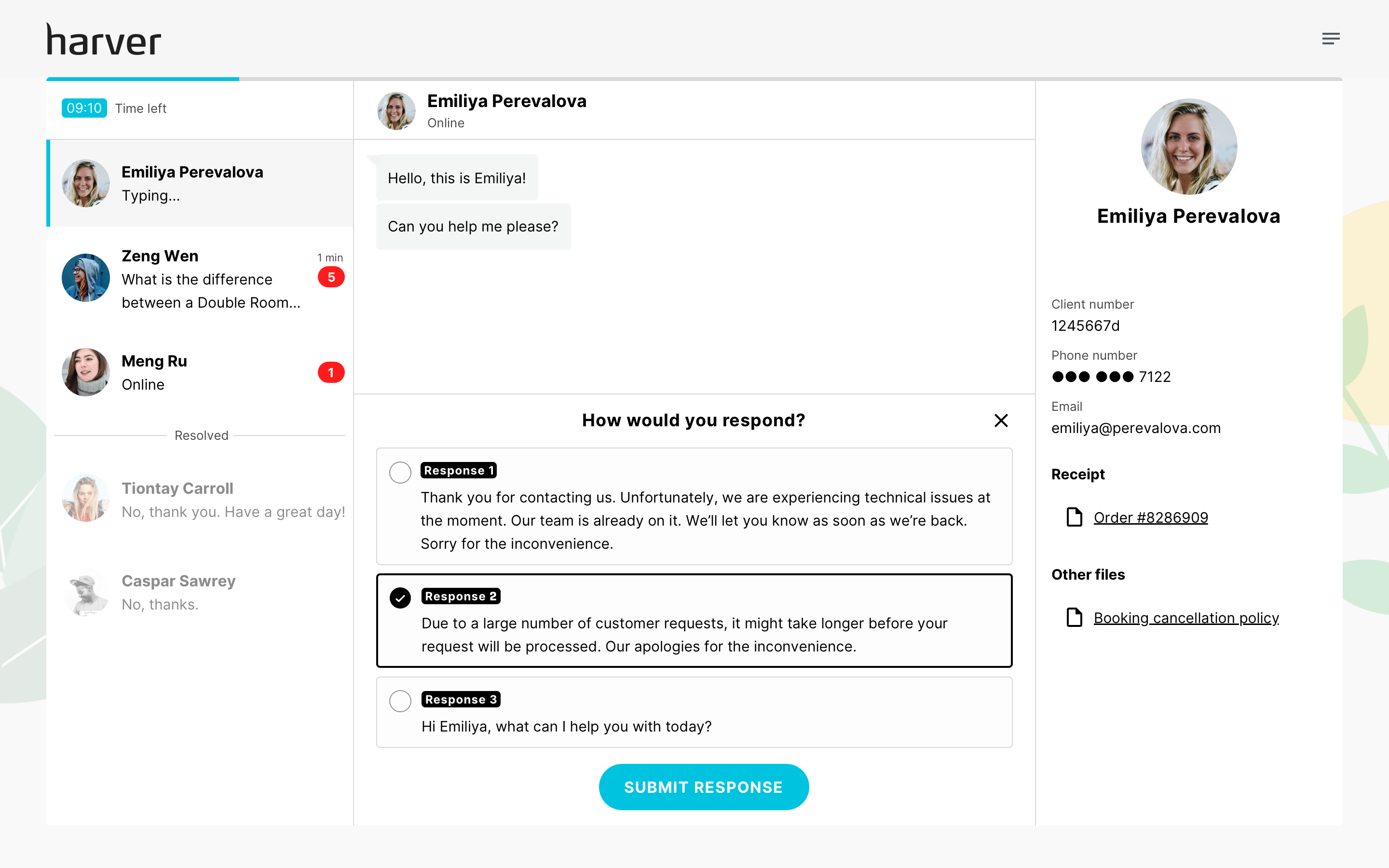The way modern customers want to interact with companies is changing all the time in the digital age. Today to provide the best customer service experience possible, an omnichannel approach is necessary. While voice calls are still a very popular form of communication, customers now expect to reach companies via other convenient support methods, like email, social media, or live chat.
With so many companies recognizing the benefits and turning to live chat support, it’s no surprise that the chat agent role is fast-growing for many contact centers, BPOs, and other businesses too. And while you might think that hiring good chat agents involves mainly verifying their customer orientation and typing skills, there’s a lot more to it than that.
Here are our tips on how to hire live chat agents, so you can choose the best fit for your business, offer a range of communication methods for your customers, and improve your overall customer experience.
What’s in?
Like what you see?
Don’t miss out. Subscribe to our quarterly digest to get the latest TA and TM resources delivered right to your inbox.
Why hire live chat agents?
Before we dive into our tips, let’s take a look at why hiring chat agents is beneficial. First and foremost, offering live chat can help attract new customers and grow your business. 79% of businesses say offering live chat has had a positive impact on their sales, revenue, and customer loyalty. Plus, 38% of consumers say they’re more likely to buy from a company if they offer live chat support.
Live chat is not only a useful tool in terms of attracting new customers but also retaining the current ones. 51% of consumers say they’re more likely to stick with or buy again from a company that offers live chat. And it’s not only valuable for aligning with modern consumer preferences to grow your business, but also for improving the customer experience across the board. In a recent survey, 73% of respondents said live chat has the highest customer satisfaction rate compared to traditional support channels like email and phone.
When done the right way, the business case for live chat is clear, but getting it right can be easier said than done. Don’t worry, we’ve got you covered! Let’s talk practical tips and tricks to help you hire only the best chat agents for your company.
Tips for hiring live chat agents for your business
1. Determine your needs
The first step to hiring live chat agents is to determine the level of support you need. This will help you better understand what you need to look for when comparing candidates. To figure out what your company’s needs are when looking to hire a chat agent, consider and answer the following questions:
How many support hours do you need to cover? Some companies opt to hire live chat agents that work during typical business hours, whereas others prefer to offer 24/7 chat support or work across different time zones.
How many chat tickets do you expect to get? Do you currently have a continuous customer support queue, or do you expect minimal tickets? Take into account how many hours you currently spend on chat requests to determine how much support you need.
Will your agents only do live chat support? Or, also asynchronous messaging? There are pros and cons to both options, and the best fit for you depends on your business’ needs. Live chat support will require faster response times, whereas asynchronous messaging functions more like email.
Will your agents support one or multiple clients? Determining this will help you identify how many chat agents you’ll need and whether or not they should have expertise in specific industries.
Will you offer live chat on social media platforms? While some companies restrict their live chat to their website only, others offer support through Facebook Messenger and direct messages on Twitter.

Incorrectly determining your customer service needs can lead to frustration and even loss of revenue.
2. Define the role and skills needed
To hire chat agents that thrive in their role, you need to have a clear understanding of what the position will entail and the skills necessary to do it well. You can figure this out by doing a job tasks analysis to understand which hard and soft skills and competencies your agents need to have to provide great chat experiences.
For example, to succeed in their role, live chat agents must be good at multitasking, problem-solving, and working well under pressure. These skills are essential, as chat agents are typically required to perform multiple activities (reading, typing, searching for information, etc.) at one time.
They should also have solid writing, typing, and computer navigation skills to ensure they’re tech-savvy enough to use the required technology, toggle between screens, and more, all in an efficient manner. And of course, customer service skills and attentiveness are essential for providing positive experiences and building strong relationships with consumers.
Each of these skill sets is likely to come into play when interacting with customers to provide top-notch support. You can design your recruitment process based on these skills and write good job descriptions that accurately reflect the role.
- White paper
Before you continue!
Don’t forget to grab your free copy of our white paper on contact center volume hiring in 2021. Learn about:
- The challenges currently shaping the contact e
center recruitment space - How employers can navigate the new remote-first reality, and the role of technology in a future-proof recruitment process
- The four building blocks of a fully digital recruitment process

3. Advertise in the right places
Hiring live chat agents begins with advertising in places where people with the right skills look for jobs. While you may have luck on popular sites like Indeed, you’re more likely to find well-suited candidates on a specialty job board. For example, there are job boards specifically designed for hiring customer service roles, like SuccessJobs, CustomerServiceJobs, and CustomerServiceCrossing.
If your live chat agents will work remotely, you can also advertise open roles on remote work job boards to expand your sourcing strategy. A few great remote work job boards to check out are FlexJobs, WeWorkRemotely, Remote.co, WorkingNomads, VirtualVocations, and SkipTheDrive. For part-time or freelance chat agent roles, you might also consider sites like UpWork.

Even though niche job boards have less traffic than the general job search sites, they usually bring in a lot of qualified candidates.
4. Assess your applicants
Now that you’ve determined which skills you’re looking for, you can select the right assessment to help test for them and determine whether or not your candidates are a good fit. Pre-employment assessments are an excellent way to narrow down your shortlist and ensure you only move forward with candidates who possess the skills they need to succeed in the role.
For example, a cognitive ability assessment will allow you to test perceptual speed and accuracy, a predictor of success in jobs that require the ordering, sorting, and verifying of information. This type of assessment measures how efficiently candidates work on relatively unfamiliar tasks while under pressure. It is very relevant to a live chat agent role, which requires solving a multitude of customer issues efficiently.
Another cognitive ability to assess is logical reasoning, which can help predict success in jobs that require complex problem-solving and decision-making. Logical reasoning assessments measure the candidate’s ability to recognize patterns, make visual comparisons, detect abnormalities, and observe relevant details.
And it’s not only cognitive abilities you can assess before selecting which chat agents to hire. You can also do assessments on many other important skills required for the chat agent role, like typing, multitasking, and language proficiency.
Hire better live chat agents, at scale.
Dive into the rise of live chat, the skills of top-performing agents, and how to best assess them to reduce attrition and guarantee top-notch customer service.

5. Conduct a live chat simulation assessment
Another important skill you need to assess is “concurrency”, or a chat agent’s ability to handle multiple conversations at a time without sacrificing quality. This is very important, especially seeing as 95% of customers cite valuing thorough, high-quality support more than they value speed. By using a live chat simulation assessment, you provide an engaging and interactive candidate experience that helps you determine whether the person in question can handle the pressures of the job.
Live chat simulation assessments measure a candidate’s ability to effectively handle multiple chat conversations in real time. During this type of assessment, applicants are provided with multiple realistic customer support queries and assessed on their ability to provide an appropriate, quality response in a timely fashion.
At the same time, you’re providing your candidates with a realistic job preview which helps set their expectations about the live chat agent role at your organization and allows them to see if they would be a good fit. This way, you can effectively reduce unwanted employee turnover.

6. Arrange a trial shift
Arranging a trial shift is a great way to evaluate candidates and see how they do on the job. Let your candidates handle a couple of chats to see how they work and if they’re a good fit for the role you’re hiring for. A job trial will also give applicants another chance to judge for themselves if this is something they would want to do and help manage their expectations before making the final decision.
If you decide to set up a trial shift, make sure to agree on the conditions beforehand. For example, will it be a full trial day or just a couple of hours? Will you pay applicants for the trial regardless of whether or not you select them for the role? If so, how much will you pay? (It’s always a wise idea to pay applicants for their time during a trial shift!) Make these arrangements ahead of time and make sure they’re clear to your candidates before beginning a job trial.
7. Onboard with care
Hiring the best live chat agents doesn’t end with your candidate selection. Effective onboarding is critical for ensuring your chat agents are well-equipped with the knowledge and training they need to do the job successfully.
To help set them up for success, make sure that you arrange frequent check-ins with your new agents, that all the training materials are always accessible and that they know who to turn to if they have questions—especially if you’re onboarding them remotely. Build a database of frequently asked questions (FAQ) and the appropriate responses to make it easy for new agents to find what they’re looking for.
You can also take an active role by overseeing their first live chat sessions and giving them feedback on their work and tips to help them succeed in the role. For example, if you observe their first live chat sessions and recognize that they’re struggling with finding the right information while also talking to customers, you can share helpful shortcuts that make it easier to work efficiently.
Over to you
Hiring great live chat agents can drastically improve the level of support you offer to your current and future customers. Not only will they appreciate the speed and convenience that comes with live chat support, but also the ability to access friendly customer service without spending ages listening to on-hold music.
By understanding the live chat agent role, using the right channels to source candidates, and assessing relevant skills and competencies before making your selection, you can make sure that your new hires thrive when working with customers.
With that said, don’t forget that hiring the agents is only the beginning; you also need to provide continuous development opportunities and chart career paths for them to ensure success. Your customers, team members, and chat agents will be all the better for it.
Experience our best-in-class Live Chat Assessment first-hand!
Perfect for remote hiring, our live chat assessment makes it easier than ever to hire live chat agents. Candidates experience the job, while you get actionable data to drive hiring decisions.


